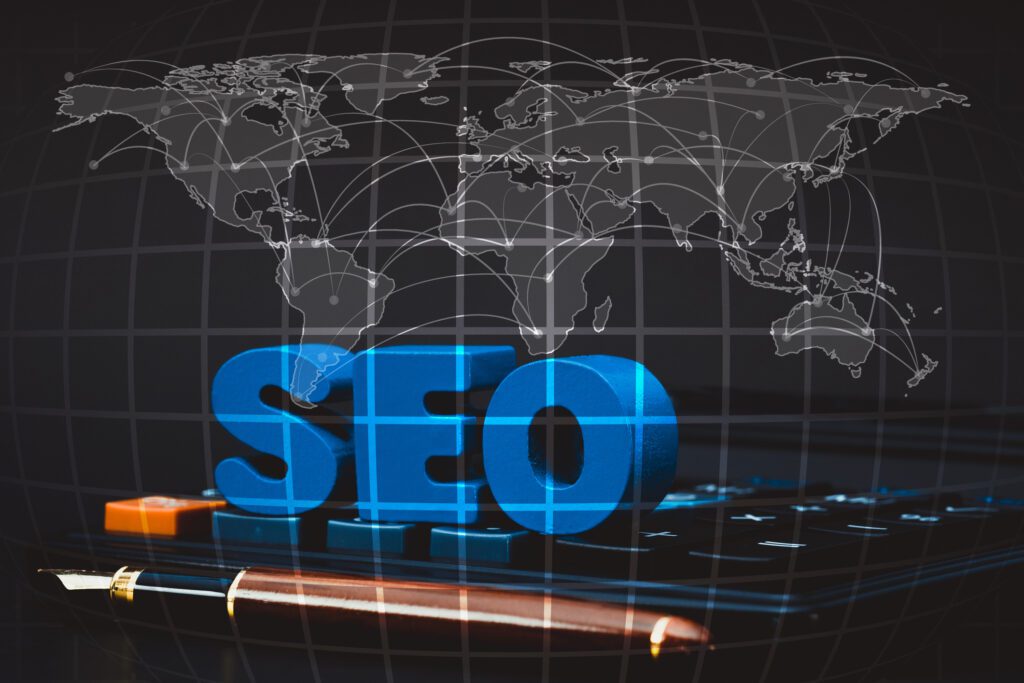- 06-41226543
- info@connectyourworld.nl


Last Updated on 22 May 2025 by connectyourworld

In the vast realm of the digital landscape, where borders blur and connections transcend geographical boundaries, businesses are faced with the challenge of reaching audiences across the globe. Imagine a world where your products or services could effortlessly resonate with customers on different continents, expanding your brand’s footprint far beyond local borders. This is where the magic of International SEO comes into play – a dynamic strategy that unlocks the potential for global digital dominance.
Once upon a time, businesses focused primarily on local SEO, ensuring visibility within their immediate vicinity. However, as the internet evolved and markets became increasingly interconnected, the need for a more expansive approach became evident. In this blog post, we embark on a journey through the intricate world of International SEO, exploring its significance, strategies, and the compelling data that underscores its effectiveness.
To comprehend the importance of International SEO, let’s first delve into the global online ecosystem. According to the latest data from Statista [source: https://www.statista.com/statistics/617136/digital-population-worldwide/], over 4.9 billion people are active internet users, constituting more than 60% of the world’s population. This massive online audience presents an unprecedented opportunity for businesses willing to venture beyond their local markets.
The internet has enabled seamless communication and commerce on an international scale. Whether you operate a local bakery or an e-commerce giant, tapping into the global market can significantly boost your brand’s growth and revenue. However, the key lies in making your digital presence felt amidst the noise, and that’s where International SEO emerges as a game-changer.
Localization is at the heart of successful International SEO. Google’s search algorithms increasingly prioritize localized content to deliver relevant results to users worldwide. This is substantiated by a survey conducted by Common Sense Advisory [source: https://www.commonsenseadvisory.com/], revealing that 75% of consumers prefer to buy products in their native language. Furthermore, a study by CSA Research [source: https://csa-research.com/] found that 56% of consumers are more likely to make a purchase if the information is available in their native language.
These statistics underline the critical role of language and cultural relevance in international digital marketing. Effective localization involves adapting not just the language but also the content, imagery, and even the user experience to resonate with the target audience. In doing so, businesses can create a connection that transcends borders and resonates with diverse consumer preferences.
Navigating the intricate web of International SEO requires a solid technical foundation. Hreflang tags, a crucial component in this realm, signal to search engines the language and regional targeting of your content. When implemented correctly, hreflang tags ensure that users are directed to the most relevant version of your website based on their location and language preferences.
According to a study by Moz [source: https://moz.com/], sites with proper hreflang implementation saw a 33% increase in search visibility. This data underscores the significance of technical accuracy in international SEO efforts. To maximize the impact of hreflang tags, businesses should conduct thorough keyword research for each target market, optimizing content accordingly.
In addition to hreflang tags, other international SEO best practices include creating country-specific sitemaps, using geotargeting in Google Search Console, and employing server location strategically. These technical nuances may seem daunting, but the rewards in terms of global visibility and organic traffic are well worth the investment.
In the ever-evolving landscape of digital marketing, data serves as a compass, guiding businesses towards informed decision-making. Google Analytics, SEMrush, and other analytics tools offer valuable insights into user behavior, search patterns, and the effectiveness of international SEO strategies.
Let’s examine the impact of international SEO on website traffic using real-world data. According to a case study by Ahrefs [source: https://ahrefs.com/], a website’s organic traffic increased by 88% within six months of implementing a comprehensive international SEO strategy. This remarkable growth emphasizes the tangible outcomes that businesses can achieve by strategically expanding their online presence.
While the benefits of international SEO are clear, challenges inevitably arise on the path to global digital dominance. A study by Search Engine Journal [source: https://www.searchenginejournal.com/] highlighted that 65% of businesses encounter difficulties in managing multiple language versions of their website. Moreover, 47% struggle with coordinating global content creation and localization efforts.
These challenges underscore the importance of a well-defined international SEO strategy, backed by robust tools and processes. Content management systems with built-in multilingual capabilities, collaborative workflow platforms, and effective project management are essential elements in overcoming these hurdles.
As we conclude our exploration of international SEO, it’s crucial to envision the future landscape of global digital marketing. The rise of voice search, artificial intelligence, and evolving search engine algorithms will undoubtedly shape the way businesses approach international SEO.
Voice search, in particular, is gaining prominence, with Comscore [source: https://www.comscore.com/] predicting that 50% of all searches will be voice-based by 2024. This shift emphasizes the need for businesses to optimize their content for conversational queries and regional language nuances, further highlighting the dynamic nature of international SEO.
In this ever-evolving digital era, the ability to adapt and embrace new technologies will be key to maintaining a competitive edge on the global stage. As businesses continue to harness the power of international SEO, the journey towards global digital dominance becomes an ongoing saga of innovation and strategic evolution.
International SEO is not merely a SEO strategy; it’s a transformative journey that opens doors to untapped markets, diverse audiences, and unparalleled growth. Through the lens of data, statistics, and real-world case studies, we’ve navigated the intricate landscape of global digital marketing.
As businesses strive to connect with audiences worldwide, the importance of language localization, technical precision, and data-driven decision-making cannot be overstated. By adopting a holistic approach to international SEO, businesses can position themselves as global leaders, transcending borders and unlocking the full potential of the interconnected digital world. So, embark on this global odyssey, and let your brand’s digital presence resonate across continents, leaving an indelible mark on the vast canvas of the internet.
The author of this blog post is Herman Geertsema. Herman is the owner of Connect your World, a digital agency in Den Haag. He is an experienced content marketeer and SEO specialist from Den Haag.